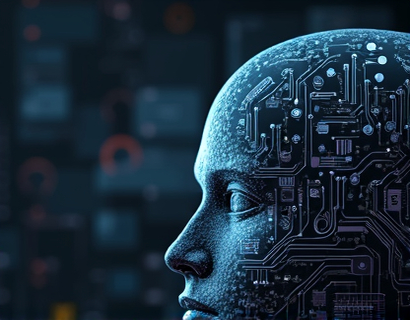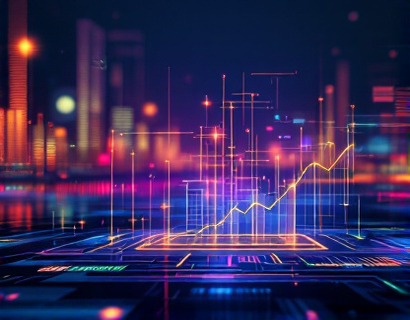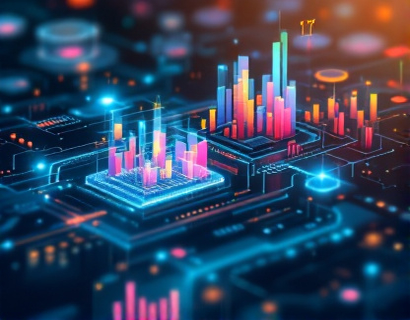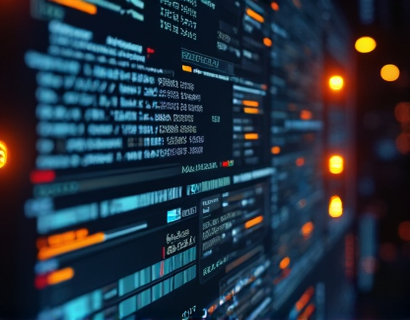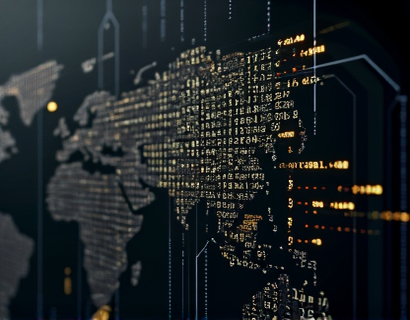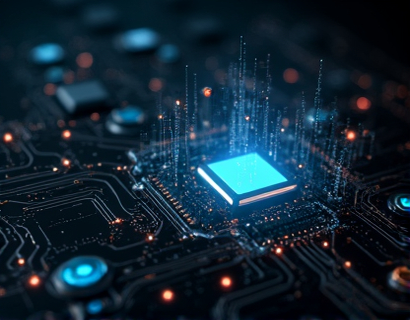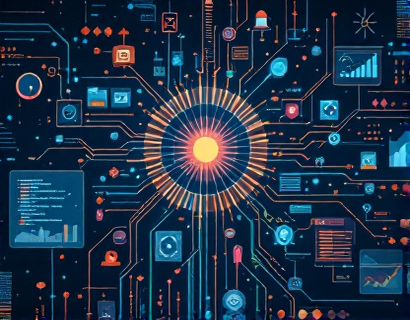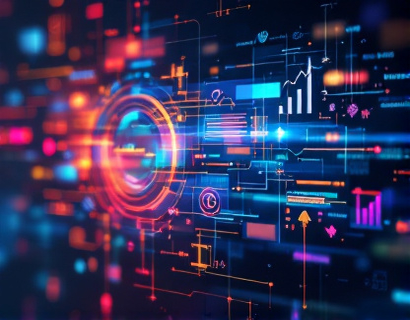The Intersection of AI and Crypto: Pioneering the Future of FinTech
The convergence of artificial intelligence and cryptocurrency is redefining the landscape of financial technology. This fusion is not just a trend but a transformative force that is reshaping how we perceive, interact with, and utilize digital currencies and financial services. As tech enthusiasts and innovators, understanding this synergy is crucial for navigating the future of finance. This article delves into the intricate ways AI and crypto are merging to create intelligent solutions that promise to revolutionize the FinTech industry.
Understanding the Basics: AI and Cryptocurrency
To grasp the impact of AI on cryptocurrency, it's essential to first understand the fundamental concepts of both technologies. Artificial intelligence, a branch of computer science, involves the development of algorithms and systems that can perform tasks requiring human intelligence, such as learning, reasoning, and self-correction. On the other hand, cryptocurrency is a digital or virtual currency that uses cryptography for security and operates on a decentralized network, most notably blockchain technology.
Cryptocurrencies like Bitcoin, Ethereum, and numerous altcoins have disrupted traditional financial systems by offering decentralized, transparent, and secure transactions. The blockchain, the underlying technology, ensures that all transactions are recorded in a tamper-proof ledger, accessible to all participants. This transparency and security are foundational for the adoption of cryptocurrency in various sectors.
AI in Cryptocurrency: Enhancing Security and Efficiency
One of the most significant contributions of AI to cryptocurrency is in the realm of security. Traditional security measures often struggle to keep pace with sophisticated cyber threats. AI algorithms, with their ability to analyze vast amounts of data in real-time, can detect and respond to anomalies and potential threats more effectively. Machine learning models can identify patterns indicative of fraudulent activities, such as wash trades or pump-and-dump schemes, and flag them for review or automatic action.
Moreover, AI enhances the efficiency of cryptocurrency transactions. Smart contracts, self-executing contracts with the terms directly written into code, can be optimized using AI to automate complex processes. For instance, AI can predict market trends and automatically execute trades based on predefined criteria, reducing human intervention and increasing transaction speed. This automation not only speeds up processes but also minimizes human error and operational costs.
Predictive Analytics in Crypto Markets
Predictive analytics is another area where AI shines in the cryptocurrency space. Traditional financial markets rely heavily on historical data and fundamental analysis, but the volatility and complexity of crypto markets require more advanced tools. AI algorithms can process and analyze vast datasets, including market trends, social media sentiment, and macroeconomic indicators, to forecast price movements with higher accuracy.
These predictive models can help investors make more informed decisions, potentially leading to better returns. For example, natural language processing (NLP) techniques can analyze news articles, tweets, and other textual data to gauge market sentiment, which is a significant factor in price fluctuations. By integrating these insights with quantitative analysis, AI can provide a comprehensive view of the market, aiding both individual traders and institutional investors.
Decentralized Finance (DeFi) and AI
Decentralized Finance, or DeFi, is an emerging sector that leverages blockchain technology to create financial services without traditional intermediaries. AI plays a pivotal role in enhancing DeFi platforms by improving risk management, optimizing lending and borrowing, and personalizing financial services. AI-driven risk assessment models can evaluate the creditworthiness of users in a decentralized manner, ensuring that lending decisions are based on robust data analysis rather than subjective judgments.
In lending platforms, AI can dynamically adjust interest rates based on real-time market conditions and user behavior, promoting more efficient capital allocation. Additionally, AI-powered chatbots and virtual assistants can provide 24/7 customer support, guiding users through complex financial operations and enhancing the overall user experience. This level of automation and personalization is a game-changer for the DeFi ecosystem.
Tokenization and AI: Opening New Horizons
Tokenization, the process of converting assets into digital tokens on a blockchain, is another area where AI can add significant value. AI can optimize the tokenization process by analyzing market demand, predicting token prices, and identifying optimal issuance times. This ensures that tokens are launched under the most favorable conditions, maximizing their value and adoption.
Furthermore, AI can enhance the utility of tokens by integrating them with various services and applications. For instance, AI-driven platforms can use tokens to reward users for contributing data, participating in decentralized applications (dApps), or engaging in community governance. This creates a more interactive and incentivized ecosystem, fostering greater user engagement and platform sustainability.
Challenges and Considerations
Despite the numerous benefits, the integration of AI and cryptocurrency is not without challenges. Regulatory uncertainty remains a significant hurdle, as governments and financial authorities are still grappling with how to oversee these innovative technologies. Ensuring compliance with existing regulations while fostering innovation is a delicate balance that requires collaboration between tech companies, regulators, and the legal community.
Another challenge is the technical complexity involved in developing and maintaining AI systems. Building robust and secure AI models requires expertise in both AI and blockchain technologies. Additionally, the ethical implications of AI, such as bias in algorithms and data privacy, must be carefully addressed to build trust and ensure responsible use.
Future Prospects: AI and Crypto Together
Looking ahead, the synergy between AI and cryptocurrency is poised to drive further innovations in the FinTech sector. As AI algorithms become more sophisticated, their applications in finance will expand, leading to more intelligent, efficient, and user-friendly financial services. The combination of AI's analytical power and cryptocurrency's decentralized nature has the potential to democratize finance, making high-quality financial tools accessible to a broader audience.
Moreover, the development of AI-powered blockchain scalability solutions could address one of the major limitations of current blockchain technologies. By optimizing transaction processing and reducing latency, AI can help blockchain networks handle higher volumes of transactions, making them more practical for everyday use.
In conclusion, the fusion of AI and cryptocurrency is not just a technological advancement but a transformative shift in how we approach finance. As we continue to explore and harness this synergy, the future of FinTech looks brighter and more inclusive than ever. For tech enthusiasts and innovators, embracing this intersection offers endless opportunities to contribute to and benefit from the evolving financial landscape.



